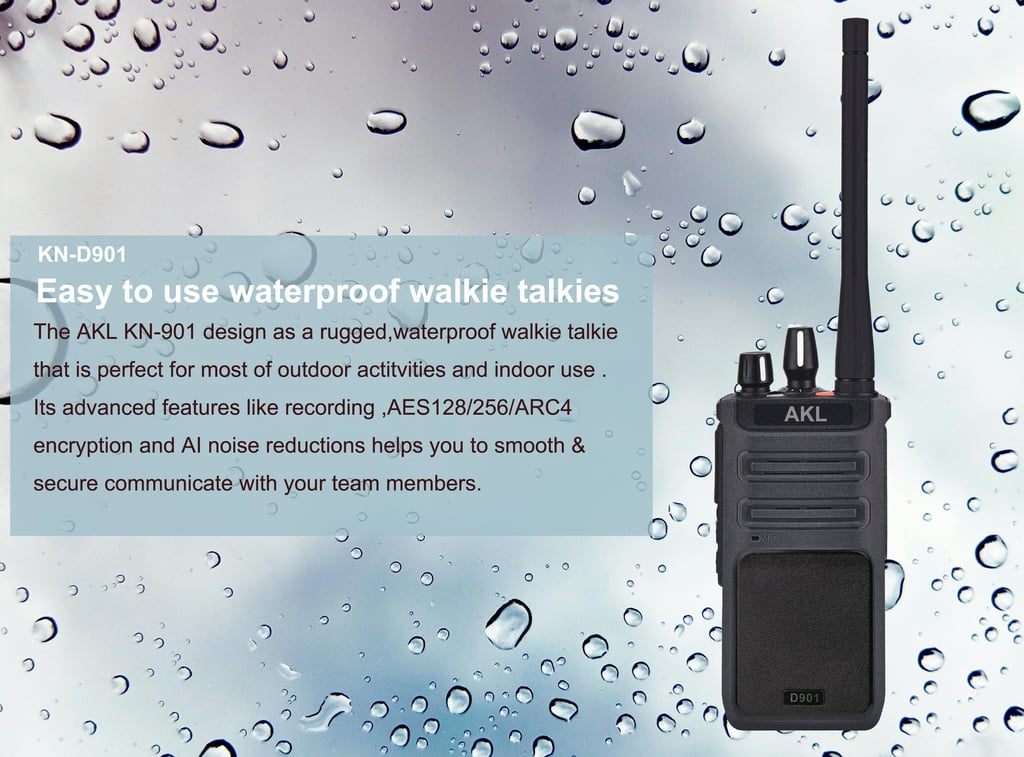What is pros and cons of digital radio ?
Coin has two sides . Sames digital walkie talkie . Now let AKL helps you to understand more about its pros and cons .Hope it will be helpful when you choose and purchase the handheld two way radio for use .
Ally
3/1/20242 min read


What is pros and cons of digital radio ?
Here we would like to list out some of them for your reference when you choose or purchase the DMR rado for your use .
Pros:
1. Digital Clarity: DMR radios provide clear and crisp audio quality, especially in areas with high levels of interference, compared to analog radios.
2. Efficient Spectrum Usage: DMR technology allows for the efficient use of spectrum, enabling more users to communicate simultaneously on the same frequencies compared to analog systems.
3. Enhanced Privacy: DMR radios support encryption features, providing enhanced privacy and security for sensitive communications.
4. Extended Battery Life: DMR radios typically have longer battery life compared to analog radios, thanks to the efficient use of power in digital transmission.
5. Advanced Features: DMR radios offer a wide range of advanced features such as text messaging, GPS tracking, and telemetry data transmission, enhancing communication capabilities.
6. Interoperability: DMR radios are designed to be interoperable with other DMR-compliant radios, allowing users from different manufacturers to communicate seamlessly on the same network.
Cons:
1. Initial Cost: DMR radios and infrastructure may have a higher initial cost compared to analog radios, especially when upgrading from existing analog systems.
2. Complexity: DMR technology can be more complex to set up and configure compared to analog systems, requiring specialized knowledge and training for proper deployment.
3. Compatibility Issues: While DMR is an open digital standard, interoperability between different manufacturers' radios and systems can sometimes be a challenge, leading to compatibility issues.
4. Learning Curve: Users who are accustomed to analog radios may experience a learning curve when transitioning to DMR radios due to differences in operation and features.
5. Dependency on Infrastructure: DMR systems rely on infrastructure such as repeaters and network controllers for operation, which may be susceptible to failures or outages, impacting communication reliability.
6. Limited Coverage in Remote Areas: Like any radio system, DMR coverage may be limited in remote or rural areas where infrastructure deployment is sparse or cost-prohibitive.
These pros and cons can vary based on specific implementations and user requirements, so it's essential to carefully evaluate your needs and consider all factors before choosing a DMR radio system.
Please feel free to refer to our DMR radio KN-D21plus ,KN-D35plus and KN-D901 for your professional choices .They are designed as commercial and professional team use .Free samples are on the going ,contact now for testing .
Chenghui International Park ,Nan 'an,Quanzhou ,Fujian ,China 362300.
Your Secure Communication Is Our Mission


allyxubin
ally@akl-tech.com anson@akl-tech.com
© 2024-2025 All rights reserved. AKL Technology Co.,Limited All Rights Reserved.
POC Radio
DMR Radio
Analog Radio
Radio Accessories
86-15859775920
